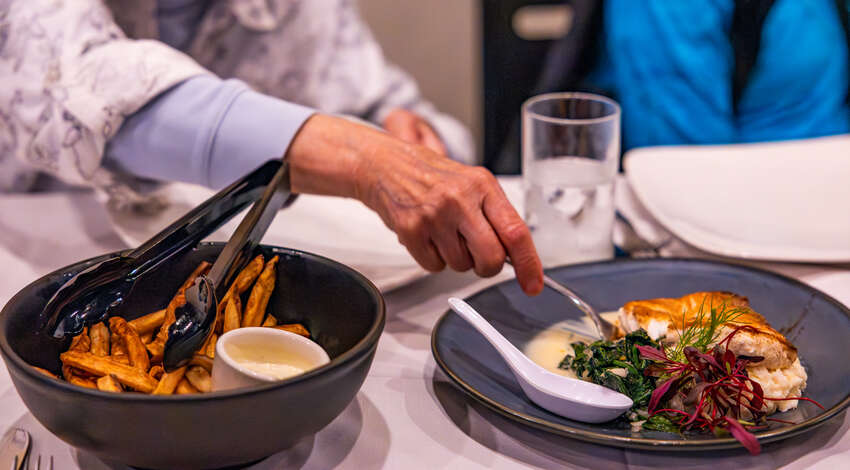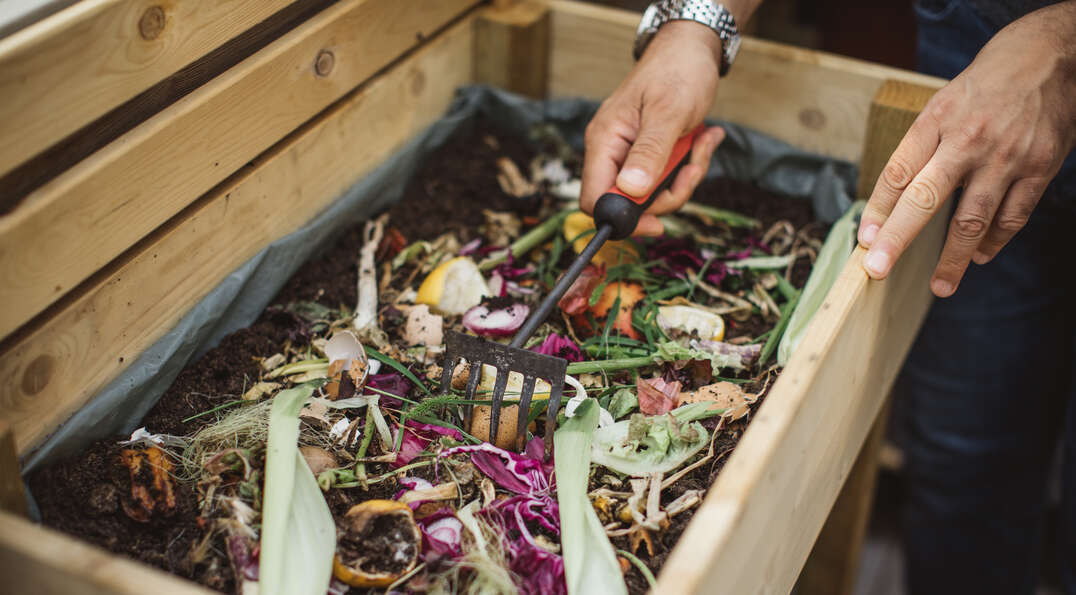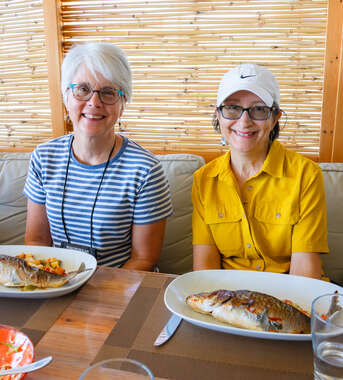More Than a Meal: A Leader’s Simple Food Waste Solution
- Road Scholar Group Leader Ira Deutsch developed a grassroots solution to reduce food waste by donating leftover meals from restaurants.
- The initiative began by giving food to the homeless and now involves bringing surplus meals to a local Washington, D.C. firehouse, building community connections.
- Participants are invited to join the donation, turning the act into a hands-on learning experience about sustainability and service, especially on multi-generational programs.
- This story highlights Road Scholar's commitment to responsible travel and the passion of its leaders.

On our learning adventures, we do our best to ensure that leftover food doesn’t go to waste. For one Group Leader, that initiative has long been a passion project. On Ira Deutsch’s Washington, D.C. programs, leftover meals get a second life and serve as a community-building part of his programs.
A Simple Idea With a Big Impact
Travel often creates more food waste than eating at home. With hotel buffets, snacks and large meals, it’s easy for food to go uneaten. That’s why, whenever possible, Road Scholar’s sustainability initiative prioritizes partners who actively manage food waste through adjusted portion sizes, composting and sharing leftovers with those in need. It’s a commitment we’re passionate about, and it’s a passion we see reflected in our incredible Group Leaders.
For Group Leader Ira Deutsch, this commitment has long been a grassroots solution that started with a few boxes of leftover food.
Ira, who has led Road Scholar programs for a decade after a 26-year career in the Israeli military, first noticed the issue early in his career leading educational programs in Washington, D.C. “There were a couple of restaurants we frequented, and the buffet-style meals would mean lots of food left over,” Ira explains. He saw a direct need nearby and, without any formal plan, started packing up the extra food and taking it to a local homeless encampment.
When he began leading Road Scholar’s D.C. programs, he continued the practice.

Composting food waste.
From a Solo Act to a Shared Experience
The practice evolved from a solo act into a shared experience during one of his Grandparent Adventures. Back when he was still bringing food to the homeless near the hotel, a few grandparents approached him after a drop-off. They thanked him for providing such a powerful, tangible lesson for their grandchildren on the importance of not letting good food go to waste.
A lightbulb went on. The next day, Ira turned to the group with an offer. “I don't have to be the one to do this,” he told them. “Would your grandkids like to bring the food over?” The response to the opportunity to turn a lesson into a hands-on act of service was immediate and enthusiastic.
From that day on, the food drop-off became a shared tradition. So, when circumstances later changed and the homeless encampment was no longer near his hotel, Ira adapted his destination but kept the spirit of participation alive. He discovered the hotel was located right next to a city firehouse, and a new community connection was forged.
Ira now invites every group to participate. “They're always happy that we're not wasting food,” he says. Participants help him carry the boxes from the restaurant to the bus, and a few always join him for the short walk to the firehouse. “Sometimes they end up staying there for an hour, happily chatting with the firefighters,” he laughs.
A Passion for People and Learning
This simple act of kindness has become a memorable and meaningful part of Ira’s programs, embodying the community spirit of Road Scholar — a spirit he sees in his participants every day.
“Road Scholars are highly educated and interested,” Ira says. “They read the suggested materials for each program, and they come because of the subject matter and because they’re curious. The interaction with those people, the questions that they ask… it just makes this work so satisfying.”
Whether he’s taking a group to the Navy Memorial — a favorite, less-trafficked spot — or sharing a new story about a famous landmark, Ira’s greatest satisfaction comes from sparking that sense of discovery. “There's always someone who says, ‘I've been here before, but I never knew that.’ That's what makes it special.”
Ira’s food-waste solution is more than just a logistical plan — it’s a lesson in community, sustainability and the power of a simple, good idea. It’s a reminder that on a learning adventure, the most profound lessons can happen anywhere, at any time.
Interested in meeting Ira? Check out Spies, Lies & Intelligence: The World of International Espionage or Inside American Diplomacy With the Foreign Service.
Read about our sustainability initiatives on our website.


